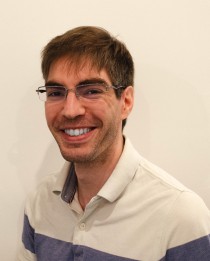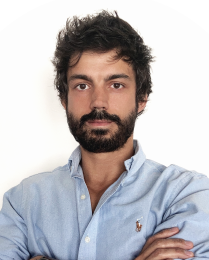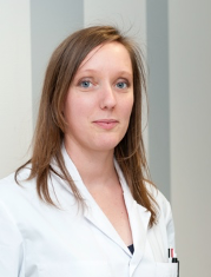- Homepage
- >Summer schools
- >Research in Medical Neurosciences
Research in Medical Neurosciences
|
When |
June 22-26, 2026 Arrival in Angers: June 21 in the morning (activities start on June 21 at noon) |
|
|
Where |
Faculty of Health, University of Angers, France | |
|
For whom |
The course is open to students who have completed two years of Medicine/Biological Sciences/Pharmacy/Veterinary/Midwifery and who may be interested in pursuing a M.D. or Ph.D. programme and envision a career in scientific or medical research. The selection of students will be made considering motivation, English level and previous research experience, if any. Citizens of all countries in the world are eligible to apply (not younger than 18 years old). | |
|
Language |
English | |
|
Participation fee |
Students from partner universities: 500 EUR Students from non-partner universities: 600 EUR Professionals: 1,000 EUR Fees include welcoming and teaching materials, coffee breaks and weekday lunches, social activities, transport pass and all costs related to scientific visits. If you are a student from the University of Angers, please contact summerschools @ univ-angers.fr | |
|
Learning outcomes |
Knowledge and Understanding Core Neuroscience Concepts: Develop a strong understanding of the structure and function of the nervous system, including key concepts in neuroanatomy, neurophysiology, and neuropathology. Neurobiology of Diseases: Understand the mechanisms underlying common neurological disorders, such as multiple sclerosis. Skills Development Hands-On Techniques: Acquire introductory practical skills in neuroscience research, such as brain dissection, microscopy, electrophysiology and neuroimaging analysis. Clinical practice: Develop practical clinical skills in emergency medicine and neurology, including advanced cardiac resuscitation (ACR), blood sampling, and cerebrospinal fluid (CSF) puncture techniques. Data Analysis: Develop skills in processing and interpreting data using bioinformatics, statistical tools, and computational models relevant to neuroscience. Communication and Collaboration Interdisciplinary Collaboration: Foster collaboration across disciplines, including biology, medicine and physiology, to address complex neuroscience challenges. Explore the course here. | |
|
Credits |
3 ECTS | |
|
Enrol now |
There are 30 spots available for this program, assigned on a first-come, first-served basis. The course may be canceled if it doesn't reach a minimum of 10 participants.
The application deadline for the Research in Medical Neurosciences Summer school is April 12. | |
Course Coordinators
|
|
Dr Naïl BENALLEGUE, Associate Professor of Pediatric Neurology at the University Hospital of Angers I am a Pediatric Neurologist specialized in neuroinflammatory disorders of the central nervous system in children. After completing medical studies at the University of Angers, I pursued a residency in Pediatrics and Pediatric Neurology at the University Hospital of Nantes. Currently serving as Asscoiate Professor in Pediatric Neurology in Angers, I combine clinical expertise with a strong background in translational research in neuroimmunology. As an alumnus of the Inserm-Bettencourt Schueller School MD-PhD program, I conducted a PhD jointly at the University of Nantes (France) and the University of Pennsylvania (Philadelphia, USA), focusing on the regulation of immune responses in multiple sclerosis. This work provided extensive training in basic immunology techniques and in vivo experimental models. My current research interests include clinical presentation, pathophysiology, and therapeutic management of MOG-associated disorders and pediatric multiple sclerosis. I am also an alumnus of the French-US Fulbright program, reflecting a dedication to fostering international collaboration in medical research. |
|
|
Pr Philippe CODRON, Professor of Neurology at the University Hospital of Angers I trained in neurology at the University Hospital of Angers from 2011 to 2016, focusing on the diagnosis and management of patients suffering from neurovascular pathologies, peripheral neuropathies and motor neuron diseases. At the same time, I was trained in sampling and analysis techniques in neuropathology (nerve, muscle, brain). After obtaining my MD in 2016, I continued my training with a 3-year PhD, shared between the University of Angers (France) and Laval University (Canada), where I carried out research projects on the mechanisms of neurodegeneration in amyotrophic lateral sclerosis, with a particular focus on neuropathology and the TDP-43 protein. After my return to France in 2019, I held the position of Associate Professor at the University Hospital of Angers, with clinical, research and teaching activities in the fields of neurology, neuropathology, neuroscience and innovation. In 2024, I obtained the highest French diploma which accredits to supervise PhD students and I became a full Professor in 2025. |
|
|
Dr Charline MIOT, Associate Professor of Immunology and Pediatrics at the University Hospital of Angers. After completing the Inserm-Bettencourt Schueller School MD-PhD program, I earned my MD in 2015 after a pediatric residency, specializing in pediatric immunology (primary immunodeficiencies) and pediatric oncology. Concurrently, I pursued a PhD in fundamental immunology, which I completed in 2013. I then pursued my clinical training as a senior fellow in pediatric oncology and biological immunology, followed by a postdoctoral fellowship at the Childrens’ Hospital of Philadelphia in Professor Bassing's laboratory, focusing on RAG proteins and their role in lymphoid ontogeny. Since returning to France in 2020, I hold a position as an Associate Professor in Immunology and Pediatrics at the University Hospital of Angers. My research focuses on primary immunodeficiencies and the immunopathology of pediatric acute leukemias. Additionally, since 2021, I have been responsible for international relations of the Department of Medicine at the Faculty of Health of Angers. |





